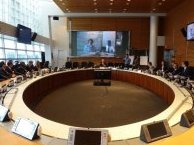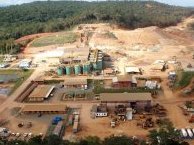
African states are party to over a thousand investment agreements, the vast majority of which have been signed with non-African countries.
In 2006, Members of the Southern African Development Community (SADC) (Botswana, Lesotho, Mozambique, Namibia, South Africa and Swaziland) signed the SADC Finance and Investment Protocol that also includes the ISDS mechanism. Only two claims have been registered under these terms, both against Lesotho (but the governments in the region do not typically disclose such information). In 2016 amendments to the protocol were adopted. They eliminated ISDS provisions (only state-to-state arbitration remained) and narrowed the scope of investors’ rights.
In South Africa, shortly after settling a dispute with foreign mining companies over its new post-apartheid mining rules (Piero Foresti & Others case), the government began to withdraw from bilateral investment treaties (BIT) that include ISDS, arguing they belonged to a bygone era. It claimed BITs focus on the interests of investors from developed countries and do not address concerns of developing countries.
The South African government decided to develop a new model BIT and strengthen its domestic legislation in regard to the protection offered to foreign investors, such as compatibility of BIT-type protection with South African law. South Africa also sought to incorporate legitimate exceptions to investor protection where warranted by public interest considerations.
Provisions of South Africa’s new model BIT have been incorporated into SADC’s. This model sets out provisions that mitigate the risks of earlier treaties and leaves open the option for state-to-state dispute settlement in addition to investor-state dispute settlement procedures.
In 2014, voices from the Namibian government cast doubts on the correlation between foreign direct investment and investment treaties including ISDS. They argued that ISDS represented a risk for developing countries, due to important legal fees and awards which can pose a significant budgetary threat. Further, statistics show most claimants come from developed countries.
About 11% of all arbitration disputes have involved African states.
In 2013, an arbitration court ordered Libya to pay US$935 million in a dispute over a land-leasing contract for a tourism project, making it one of the largest known awards to date.
Egypt has been the fifth most targeted state worldwide with 34 registered ISDS cases against it. Tanzania has been the most targeted country in sub-Sahara Africa with six disputes, all of which were initiated by European investors.
Photo: Hansueli Krapf / CC BY-SA 3.0
(April 2020)











